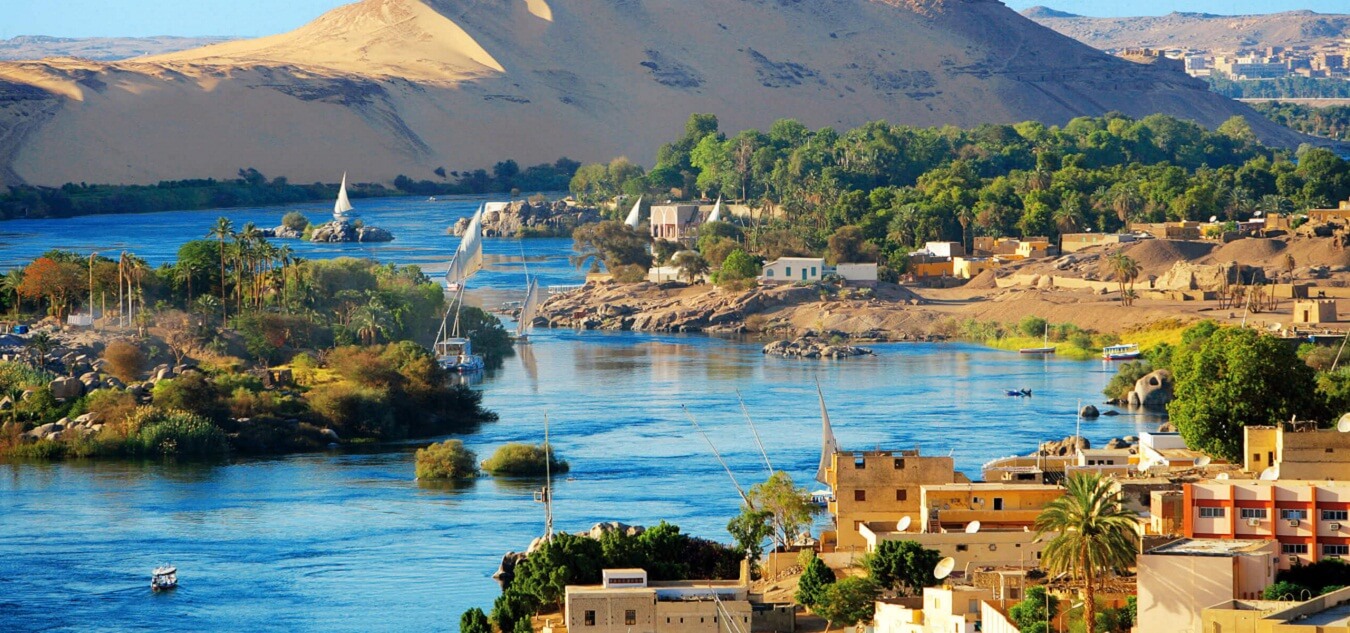More than two decades after the launch of the Nile Basin Initiative (NBI), in 1999, aimed at attaining sustainable socioeconomic development by ensuring fair use and shared benefits from the common water resources of the Nile Basin, tensions remain high as upstream and downstream countries grapple over rights to the Nile river’s life-sustaining flow.
The NBI initiative was the collective work of nine countries that share the Nile River, including the downstream countries, Egypt, Sudan, and upstream countries, Ethiopia, Uganda, Kenya, Tanzania, Burundi, Rwanda, and the Democratic Republic of Congo (DRC), with Eritrea participating as an observer.
In May 2010, Ethiopia, Kenya, Uganda, Rwanda, and Tanzania signed a Cooperative Framework Agreement (CFA) as part of the NBI. The agreement called for the replacement of the 1923 convention, which allocated 55.5 billion cubic meters of Nile water annually to Egypt and 18.5 billion cubic meters to Sudan, and required six signatories for it to be put into action.
Egypt and Sudan were given one year to sign the CFA, which both countries refused to do, expressing strong opposition. Their refusal stemmed from concerns that the agreement threatens Egypt’s access to crucial water resources, a right established under the 1929 and 1959 Nile River agreements.
“Egypt will not join or sign any agreement that affects its share,” former Egyptian foreign ministry spokesman, Hossam Zaki, told AFP in 2010.
Commonly known as the Entebbe Agreement, the 2010 CFA permits upstream countries to initiate water projects on the Nile without prior notification to downstream countries.
Egypt and Sudan emphasized their historical rights to utilize Nile River water, reaffirming the 1959 agreements, which allocated approximately 75 percent of the total flow to Egypt and 25 percent of the flow to Sudan, noting that populations’ water security depends almost entirely on the Nile.
In response, upstream countries asserted that colonial-era treaties were no longer binding, and proposed the principle of “equitable and reasonable” utilization of water resources as a means to manage resources. However, they did not provide specific details on fair rights or allocations.
In line with a 1989 ruling from the International Court of Justice (ICJ), Egypt asserted that water agreements hold the same immutability as border agreements, meaning they cannot be revoked or amended without the consent of all parties involved.
Recent developments have ignited a fresh wave of tensions and disputes as South Sudan, which gained its independence in July 2011, ratified the CFA in July of 2024, marking the sixth signature and officially allowing for the CFA to be put into force in October of 2024.
The Egyptian-Sudanese Permanent Joint Technical Commission for Nile Waters (PJTC) held a two-day meeting in Cairo on October 11 and 12 to discuss the current conundrum.
Additionally, the PJTC highlighted Egypt and Sudan’s ongoing efforts to restore cohesion and bridge the divisions caused by the 2010 CFA draft, which, according to the PJTC, does not align with international law principles or best practices that promote sustainable development and cooperation.
Egypt and Sudan jointly called on all Nile Basin countries to restore integrity to the 1999 NBI) warning that unilateral actions could deepen the disputes between upstream and downstream nations.
“Egypt and Sudan have consistently advocated for a collaborative, all-inclusive mechanism among Nile Basin states, stressing the importance of prior notification, consultations, and scientific assessments of the impacts of water projects, however, their calls for constructive engagement have not been met with positive responses,” according to a statement issued by the Egyptian-Sudanese PJTC on 12 October.
The statement further emphasized the dedication of both nations to collaborate with all countries in the Nile Basin, in alignment with internationally recognized principles designed to protect the interests of all involved parties while ensuring that no riverine state is harmed.
The enforcement of the CFA prompts important questions regarding the rights and obligations of states that remain outside the agreement and have no plans to join. This development risks intensifying legal disputes, further exacerbating the existing disputes over the Nile.
Given that Egypt relies on the Nile for 98 percent of its water supply, this agreement poses a significant threat to the country’s lifeblood. According to Egyptian President, Abdel Fattah Al-Sisi, the Nile is “indispensable to the life and survival of the Egyptian people.”
Enduring the deadlock, Egypt and Sudan continue to reject any deal that might diminish their water security.







Comments (0)